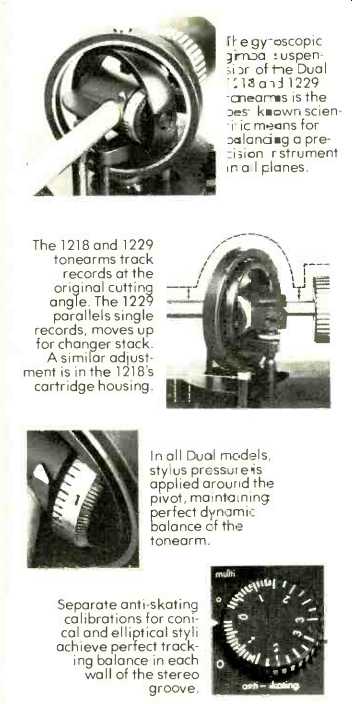People who are really serious about their records are the best ones to ask about turntables.

Most people who decide they want components turn to a friend who knows something about high fidelity equipment. If the friend is a reader of this magazine, that's good. And if the friend happens to be someone who reviews recordings, that's even better.
Record reviewers must select their equipment with great care, since they must listen with great care. To such things as the interpretation of the artist. To the recording and microphone techniques. And to the quality of the record surface itself.
All this is why the professional listeners select their turntables so carefully.
What most serious listeners know.
Professional listeners know that what they hear (or don't hear) often depends on the turntable.
After all, the turntable is the one component that actually handles records, spinning them on a platter and tracking their impressionable grooves with the unyielding hardness of a diamond. And the professional realizes that much depends on how well all this is done.
Which is why so many record reviewers listen to their records on a Dual. And why the readers of the leading music magazines buy more Duals than any other quality turntable.
They know that a record on a Dual will rotate at precisely the right speed, to give precisely the right pitch. (If a record happens to be off pitch a Dual can compensate for it.)
They know that a Dual tonearm will let the most sensitive stylus track the wildest curves ever impressed on a record groove, and not leave a trace of its passage.
And they know that a Dual will perform smoothly, quietly and reliably year after year after year. Despite all the precision built into a Dual, they know it's one turntable that doesn't have to be handled with undue concern. (Even if the tonearm is locked when play is started, or if the tonearm is restrained in mid-air while cycling, no damage will result.)
If you'd like to know more.
A few examples of Dual precision engineering are shown in the illustrations. But if you would like to know what several independent test labs say about Dual we'll send you complete reprints of their reports. Plus a reprint of an article from a leading music magazine that tells you what to look for in record playing equipment.
Better yet, just visit your franchised United Audio dealer and ask for a demonstration.
Dual turntables may seem expensive at first, but not when you consider your present and future investment in records. And now that you know what the professional listeners know, doesn't it make sense to own what they own?

United Audio Products, Inc., 120 So. Columbus Ave., Mt. Vernon, N.Y. 105513
(Audio magazine, Apr. 1974 )
Also see:
Dual 515 turntable (Mar. 1984)
Benz Micro, Switzerland (April 1974)
= = = =